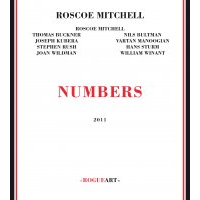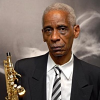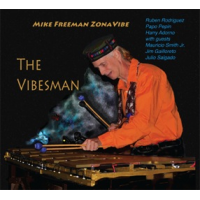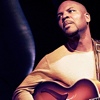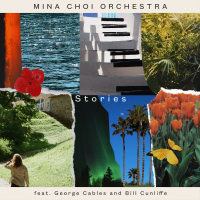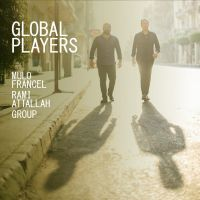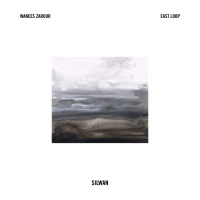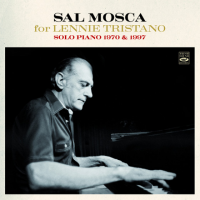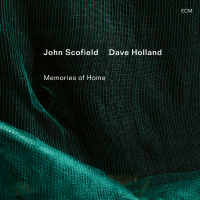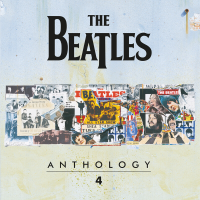Home » Jazz Articles » Album Review » Roscoe Mitchell: Numbers
Roscoe Mitchell: Numbers
Those thoughts were prompted upon listening to Numbers, which features works by Art Ensemble of Chicago reedman Roscoe Mitchell played by interpreters of contemporary music. Mitchell himself, playing alto saxophone, appears on just one out of 13 tracks, recorded in multiple sessions over an eight year period from 2002. Even though, as Bill Shoemaker points out in his liners, little of the content would seem out of place individually in any Mitchell set list, the act of bringing these pieces together does make for a different experience. There is no indication as to whether the works are entirely through-composed or allow extemporization into their realization, but in spite of their abstraction, the consistent purity of tone and precision of delivery places them firmly in the contemporary new music camp.
Several cuts stand out. Two versions of "Bells for New Orleans" bookend the program, and a fuller rendition occurs mid-flow, lending a unity of form to the otherwise disparate collection. How the listener reacts to the three settings for e.e. cummings' poems for piano and voice will largely depend upon the response to Thomas Buckner's speech-like intonation. "WR/C 2A Opus 1," for the principal's acid-toned alto saxophone and William Winant's vibes, turns alternately reflective and inquiring. At best (as on "Sketches," where Hans Sturm's warmly lyrical bass sings in the cello register, and the three movements of "8/8/88," delivered staccato, but with rolling syncopated inflections by pianist Stephen Rush), there is sufficient overt melody or cadence to leaven the cerebral austerity which is the dominant characteristic of this album.
Track Listing
Bells for New Orleans (prelude); 9/9/99; Sketches; because it's; this; dim; Bells for New Orleans; WR/C 2A Opus 1; 8/8/88 1st Movement; 8/8/88 2nd Movement; 8/8/88 3rd Movement; 9/9/09; Bells for New Orleans (postlude).
Personnel
Roscoe Mitchell
saxophoneRoscoe Mitchell: composition, alto saxophone (8); Thomas Buckner: baritone voice (4, 5, 6); Nils Bultman: viola (12); Joseph Kubera: piano (2, 4, 5, 6); Vartan Manoogian: violin (2); Stephen Rush: piano (9, 10, 11); Hans Sturm: double bass (3); Joan Wildman: piano (3); William Winant: tubular bells (1, 13), orchestra bells (7), vibraphone (8).
Album information
Title: Numbers | Year Released: 2012 | Record Label: Rogue Art
Tags
PREVIOUS / NEXT
Support All About Jazz
 All About Jazz has been a pillar of jazz since 1995, championing it as an art form and, more importantly, supporting the musicians who make it. Our enduring commitment has made "AAJ" one of the most culturally important websites of its kind, read by hundreds of thousands of fans, musicians and industry figures every month.
All About Jazz has been a pillar of jazz since 1995, championing it as an art form and, more importantly, supporting the musicians who make it. Our enduring commitment has made "AAJ" one of the most culturally important websites of its kind, read by hundreds of thousands of fans, musicians and industry figures every month.


